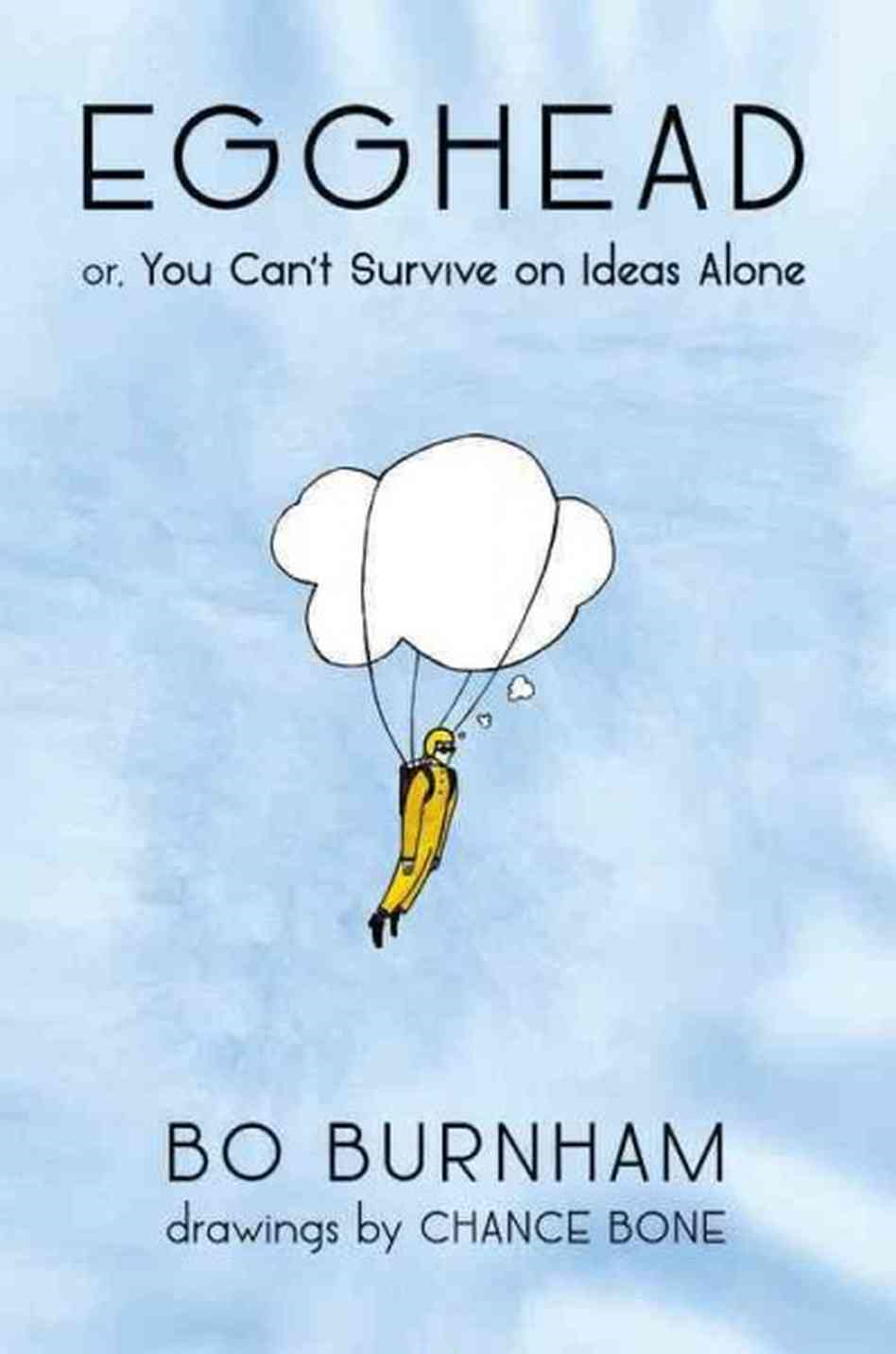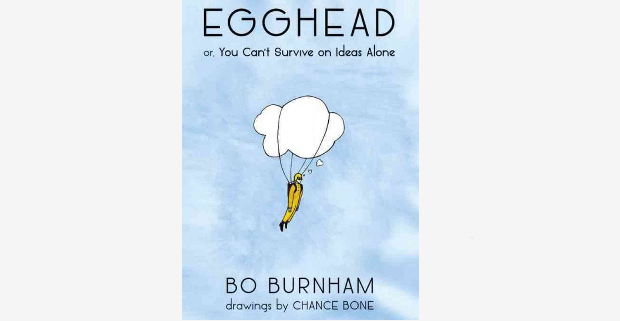 There’s a lot to be said of someone who has the nerve to write poetry in this day and age. But, there’s even more to be said when this same person is an actor, comedian, song-writer, and musician with the aim to produce something “weird”–as he declared about eight times. Having flipped through the pages here and there, it is immediately obvious that the unique literary elements that are found in the novel’s pages have an unusual appeal. This can be attributed to the author, Burnham, and the accompanying doodles by his friend, Chance Bone. As a prior fan of Burnham’s work, I like to think it’s because humor is an art and, for someone a few years my senior–now 23–to have made a career out of it, the guy knows what he’s doing. But, Burnham told me in a phone interview conducted from his parent’s home that he doesn’t really have the right to give advice or praise himself in that way. He’s “like the guy who found a gold mine in his backyard,” he says “it fell into [his] lap.” However, that’s far from fact because attaining Youtube fame is something a lot of people try to do. Getting a contract with Comedy Central and a sustained career is also something a lot of people try to do. There’s just something about a quirky comic with good hair and a knack for euphemisms.
There’s a lot to be said of someone who has the nerve to write poetry in this day and age. But, there’s even more to be said when this same person is an actor, comedian, song-writer, and musician with the aim to produce something “weird”–as he declared about eight times. Having flipped through the pages here and there, it is immediately obvious that the unique literary elements that are found in the novel’s pages have an unusual appeal. This can be attributed to the author, Burnham, and the accompanying doodles by his friend, Chance Bone. As a prior fan of Burnham’s work, I like to think it’s because humor is an art and, for someone a few years my senior–now 23–to have made a career out of it, the guy knows what he’s doing. But, Burnham told me in a phone interview conducted from his parent’s home that he doesn’t really have the right to give advice or praise himself in that way. He’s “like the guy who found a gold mine in his backyard,” he says “it fell into [his] lap.” However, that’s far from fact because attaining Youtube fame is something a lot of people try to do. Getting a contract with Comedy Central and a sustained career is also something a lot of people try to do. There’s just something about a quirky comic with good hair and a knack for euphemisms.
So, when I got to finally look through the pages of Egghead, I was expecting some arrogance, some delirious attempts to push the boundary from comedian to indie philosopher. Instead, I was smiling to myself at the sadistic, romantic, nostalgic and anticipated laughs that were thrown my way. A powerful part of the writing comes from Burnham’s ability to grab your attention and catch you off guard. That poem about the squares? Actually, a metaphor for racism. How about the endearing piece about ‘”sluts,” ending with a male’s sentiment of heartbreak? Plot twist.
Waiting for Burnham’s call, my first official interview, I was anxious, realizing that phone calls are becoming obsolete because they cause you to nearly have heart attacks. In the interview, I compared Burnham’s alternative stage presence to his quiet, real-life demeanor as similar to Beyoncé and Sasha Fierce. Whether he laughed at the accuracy or my absurdity, I may never know. He proved to be easy to talk to and that same energy resonates in all of his works, some unfiltered authenticity that is refreshing to both our media and our demographic. Burnham’s been working on the book for nearly two and a half years, throwing random pieces together leisurely while he was working on his former MTV series. Let’s just say they added up. Burnham was positive that he didn’t want his face on the cover and have that be people’s first impression. Instead, he was looking for something “childlike.” And I have to say, he got it. There’s a capacity to wonder, wander, and think. That’s what poems are supposed to do. That’s what art and people are supposed to do.
The pairing of Burnham’s poems with Bone’s illustrations is superb. Each contrasts the other’s playfulness. Burnham wants people to be “open to things” when they’re going through these works. “I’m still, at this point, learning to not rely on approval from others and not be dependent on that,” Burnham explained modestly. For now, that’s continuing his “what.” tour through November. The avant-garde theatre still appeals to Burnham from his high school years, preceding a desire to attend NYU’s Tisch School. Still, he insists to me, “I just do what makes me happy. I’m very short-sighted and, if twenty years from now this is still it, that’s great, but I don’t think there’s an end destination where you find grand happiness. It’s more of the journey.” Burnham’s poems are an intriguing tribute to his philosophy of our generation: “People are smart. Everyone says people are distracted and unfocused now. But, they’re just trying to do so much at once. It’s not because of being stupid. It’s because they’re just as intelligent and want to juggle it all.”
With the book title nabbed from an email subject line of Bo-Chance correspondence, the poems bear that spontaneous silliness. You’re reading these poems as inside jokes with heart. They can be personal or humorous, and sometimes both. Don’t know how you feel about that? This is the type of book you could set on your coffee table or overtly leave open on your e-reader to say, “Look, I have a sense of humor, but it’s in poetry form, so I’m subtly smarter than you.” But, you won’t do that, hopefully, because instead you’ll say, “Hey, look. SnapChat can wait. Read this.”







Be First to Comment